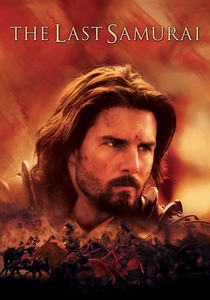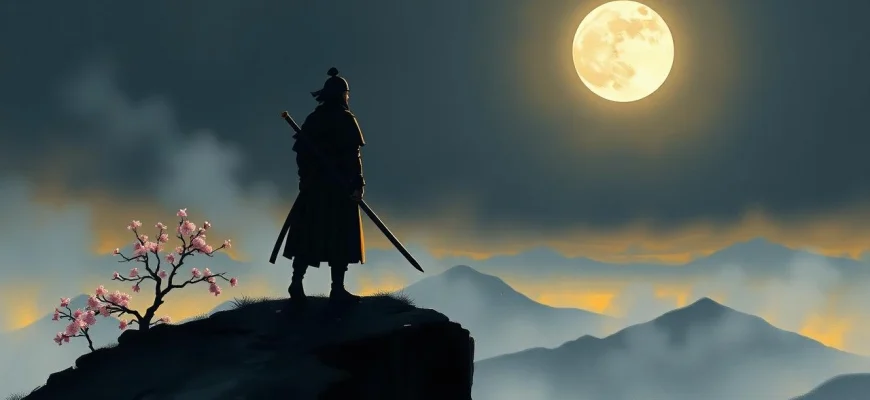If you were captivated by the intense drama and emotional depth of 'Hara-Kiri: Death of a Samurai' (2011), you're likely searching for more films or shows that deliver similar themes of honor, revenge, and samurai ethos. This article curates a list of 10 movies and series that echo the same powerful storytelling, breathtaking cinematography, and profound character arcs. Whether you're a fan of historical epics or tales of personal sacrifice, this guide will help you discover your next favorite watch.

Seven Samurai (1954)
Description: Like 'Hara-Kiri: Death of a Samurai', 'Seven Samurai' is a classic samurai film that examines the codes of honor and duty. Both films are set in feudal Japan and feature a group of samurai facing moral dilemmas. The storytelling in both films is deeply humanistic, focusing on the characters' inner struggles.
Fact: 'Seven Samurai' is often considered one of the greatest films ever made. The film was a major influence on the western 'The Magnificent Seven'. Director Akira Kurosawa spent over a year researching samurai history for the film.
 Watch Now
Watch Now 
Yojimbo (1961)
Description: 'Yojimbo' and 'Hara-Kiri: Death of a Samurai' both feature lone samurai navigating a corrupt world. The themes of moral ambiguity and the critique of feudal society are central to both films. The visual storytelling in 'Yojimbo', with its stark contrasts and dynamic compositions, is similar to the aesthetic of 'Hara-Kiri'.
Fact: 'Yojimbo' was inspired by American westerns and noir films. The film's protagonist, played by Toshiro Mifune, became an iconic character in cinema. 'Yojimbo' was remade as 'A Fistful of Dollars' by Sergio Leone.
 Watch Now
Watch Now 
Harakiri (1962)
Description: 'Harakiri' (1962) is the original film that 'Hara-Kiri: Death of a Samurai' is based on. Both films tell the same story of a ronin seeking revenge for his son-in-law's forced suicide. The themes of honor, hypocrisy, and the brutality of the samurai code are central to both versions. The 1962 film is known for its stark black-and-white cinematography, while the 2011 version uses color to enhance its emotional impact.
Fact: 'Harakiri' (196is directed by Masaki Kobayashi. The film won the Special Jury Prize at the Cannes Film Festival. It is often cited as one of the greatest samurai films ever made.
 Watch Now
Watch Now 
Sanjuro (1962)
Description: As a sequel to 'Yojimbo', 'Sanjuro' continues the story of a ronin and shares with 'Hara-Kiri: Death of a Samurai' a focus on the samurai's role in society. Both films explore the tension between individual morality and societal expectations. The films also share a similar visual style, with careful attention to period detail.
Fact: 'Sanjuro' is known for its humorous tone compared to other samurai films. The film features one of the most famous sword fights in cinema history. Director Akira Kurosawa considered 'Sanjuro' a lighter companion to 'Yojimbo'.
 Watch Now
Watch Now 
The Tale of Zatoichi (1962)
Description: 'The Tale of Zatoichi' and 'Hara-Kiri: Death of a Samurai' both focus on the life of a wandering swordsman in feudal Japan. The films share themes of honor, loyalty, and the personal cost of violence. The storytelling in both films is character-driven, with a strong emphasis on the protagonist's inner journey.
Fact: 'The Tale of Zatoichi' is the first film in the long-running Zatoichi series. The character of Zatoichi is blind, adding a unique dimension to his sword fighting. The film was a major box office success in Japan.
 Watch Now
Watch Now 
The Sword of Doom (1966)
Description: 'The Sword of Doom' and 'Hara-Kiri: Death of a Samurai' both delve into the darker aspects of the samurai lifestyle. The films explore themes of madness, violence, and the consequences of a life dedicated to the sword. The visual style of both films is stark and atmospheric, emphasizing the psychological depth of the characters.
Fact: 'The Sword of Doom' is known for its abrupt and ambiguous ending. The film's protagonist is one of the most morally complex in samurai cinema. The sword fights in the film are renowned for their realism.
 Watch Now
Watch Now 
The Last Samurai (2003)
Description: 'The Last Samurai' and 'Hara-Kiri: Death of a Samurai' both explore the end of the samurai era and the clash between tradition and modernity. Both films feature intense battle scenes and a deep respect for samurai culture. The emotional tone of both films is somber and reflective, focusing on the personal costs of historical change.
Fact: 'The Last Samurai' stars Tom Cruise and Ken Watanabe. The film was nominated for four Academy Awards. The battle scenes were choreographed by real-life sword masters.
 Watch Now
Watch Now 
Zatoichi (2003)
Description: 'Zatoichi' shares with 'Hara-Kiri: Death of a Samurai' a focus on the life of a wandering swordsman and the societal issues of feudal Japan. Both films explore themes of justice, redemption, and the human cost of violence. The visual style of 'Zatoichi', with its striking use of color and composition, is reminiscent of the aesthetic choices in 'Hara-Kiri'.
Fact: 'Zatoichi' was directed by and stars Takeshi Kitano. The film won the Silver Lion at the Venice Film Festival. The Zatoichi character has been featured in over 25 films and a TV series.
 Watch Now
Watch Now 
13 Assassins (2010)
Description: Similar to 'Hara-Kiri: Death of a Samurai', '13 Assassins' is a samurai film that delves into themes of honor, revenge, and the moral complexities of the samurai code. Both films are directed by Takashi Miike, ensuring a shared visual and narrative intensity. The films also feature meticulous period detail and brutal, realistic fight sequences.
Fact: '13 Assassins' is a remake of the 1963 film of the same name. The film's climactic battle scene lasts for nearly 45 minutes. Takashi Miike is known for his prolific output, having directed over 100 films.
 Watch Now
Watch Now 
Blade of the Immortal (2017)
Description: 'Blade of the Immortal' shares with 'Hara-Kiri: Death of a Samurai' a focus on a samurai's quest for redemption. Both films feature graphic violence and a critique of the samurai code. The visual style of 'Blade of the Immortal', with its dynamic action sequences, is reminiscent of the intensity in 'Hara-Kiri'.
Fact: 'Blade of the Immortal' is based on a popular manga series. The film features over 100 sword fights. Director Takashi Miike has described it as his 100th film.
 Watch Now
Watch Now 








